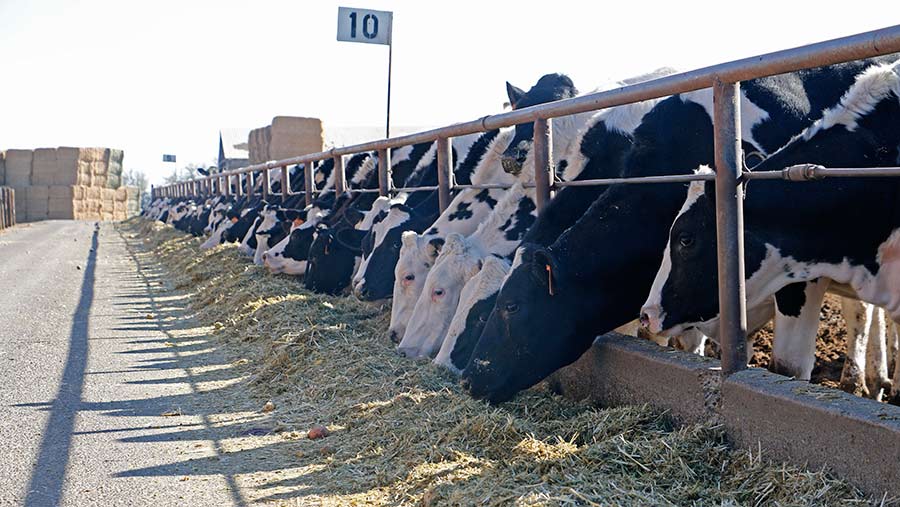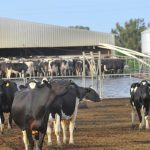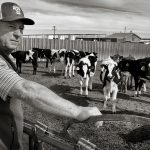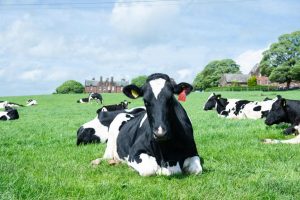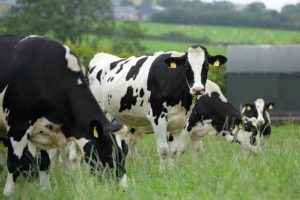
While the scale of US dairy farms bears little resemblance to UK operations, there are some striking similarities and many of the challenges facing the UK dairy sector are also issues for US producers.
Our livestock editor, Rhian Price, was invited by World Wide Sires to attend its Global Training Centre in Washington state, where she toured dairy farms milking in excess of 5,000 cows.
Below, she reports on her findings and busts some myths about large-scale dairying.
1. Large-scale dairying categorically does not equate to poor animal welfare
We visited five farms during the 10-day trip, each milking between 2,500 and 35,000 cows.
Cow welfare on each unit was exemplary, with the largest even employing an animal welfare officer to be on call 24/7. It was his job to visit the dairy at regular intervals, look at ways it could make improvements and train staff.
Each dairy had strict protocols clearly displayed on walls detailing how staff should handle animals. Staff were encouraged to report bad behaviour by calling the welfare officer (his number was clearly displayed on posters).
They also had zero tolerance to animal cruelty, and anyone seen tail jerking or hitting any animal would be fired on the spot.
Alkathene pipes were banned. Instead, workers were supplied with paddles and bottles filled with stones, which rattle when shaken, to move cows. Cameras were everywhere to capture workers.
2. Animal activists are making farming difficult
Many dairy farmers have been forced to move further away from large cities and towns as pressure from animal activists intensifies.
On our journey through Yakima County – an area densely populated by dairies and fruit-growing farms – we passed farms that stood eerily empty.
The farmers had been forced off the land, unable to afford to challenge expensive lawsuits filed against them by anti-farming groups.
Most of the time the activists cite pollution or noise, and even though the farms haven’t broken any rules they simply can’t afford to contest the lawsuits, so the cheaper solution is to up sticks.
At one dairy they told us how they have a $10,000 (£7,500) bounty put up by one prominent lobby group which is determined to put them out of business.
3. Labour is a huge challenge
The dairy industry in the US is largely reliant on migrant labour from Mexico.
Under the H-2A visa programme farmers can employ non-immigrant foreign workers temporarily. The problem is, these workers can’t stay for more than 12 months.
While this restriction suits fruit farms that require seasonal labour, it makes dairies – which require year-round employment – ineligible for the programme.
The visa process is bureaucratic and many farmers choose to pay firms specialising in visas to handle the immense amount of paperwork. They also guarantee the workers are legal.
Most of the diaries we visited use citizen verification systems such as E-verify to ensure their employees have the right to stay and work.
Others opt to use only American citizens or employees who have been granted legal residence by the government.
However, some estimates suggest half of workers on US farms are undocumented and working illegally.
To make things even more difficult, farms are being forced to increase wages to compete with better paid industries such as construction, where manual labourers receive $25/hour (£19).
The legal minimum wage in Washington is $12/hour (£9.26, compared with £8.21 in the UK for people aged 25+) but most dairies will pay upwards of $15/hour (£11.58) to attract staff, with more senior positions such as herd managers earning the equivalent of £60,000.
4. Open lots
The majority of cows are housed in open lots and bedded with compost manure.
Following heavy rainfall on the night we arrived, at first glance some of the pens looked quite dirty but the cows had plenty of space.
Another benefit is that cow slippages are infrequent, with minimal concrete at the feed bunk and parlour, and, without free stalls, cows can’t become trapped in cubicles.
Most of the dairies were running somatic cell counts below 150,000 cells/ml. Key to making the compost bedding work is drying it well enough.
Peak temperatures of 40C in the summer help this, but it can become more difficult to manage in the winter months.
The pens are scraped out three times a week and chain harrows behind the scraper keep the bedding friable.
The added bonus of using compost bedding is the farm doesn’t have to worry about exporting or spreading manure, with compost sold for fertiliser.
The only thing stored in pits is dirty water, although these can costs hundreds of thousands to build as they must be double lined with special liners and have a mandatory leak-detection system.
5. Hormones are banned
While there isn’t a universal US ban on using recombinant bovine somatotropin (RBST), a hormone that can increase milk production, many milk processors have banned it.
Darigold, the main milk processor in the region we visited, banned it in 2006.
Medicine use on farm is regulated by the federal Food and Drug Administration under the Pasteurised Milk Ordinance (PMO), which grants or removes approval of drugs. The anti-inflammatory Melixicam, for example, isn’t approved under the PMO.
As in the UK, farm assurance schemes are not required by the government but membership can be made mandatory by food processors.
Many dairy processors, including Darigold, now require farm suppliers to sign up to Farmers Assuring Responsible Management (Farm), which sets standards for animal care, environmental and antibiotics stewardship.
6. Protocols are key
With some of the farms employing up to 180 people, protocols are essential to ensure consistency.
Each area on the dairy has a set of standard operating procedures (SOPs) and members of staff have specific jobs they don’t deviate from.
This ensures tasks are done consistently well every day of the year, with key data regularly reviewed to see where improvements can be made.
